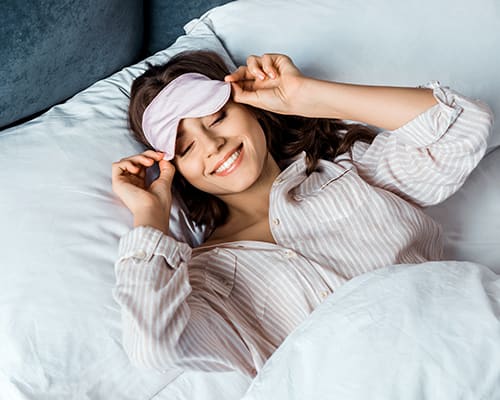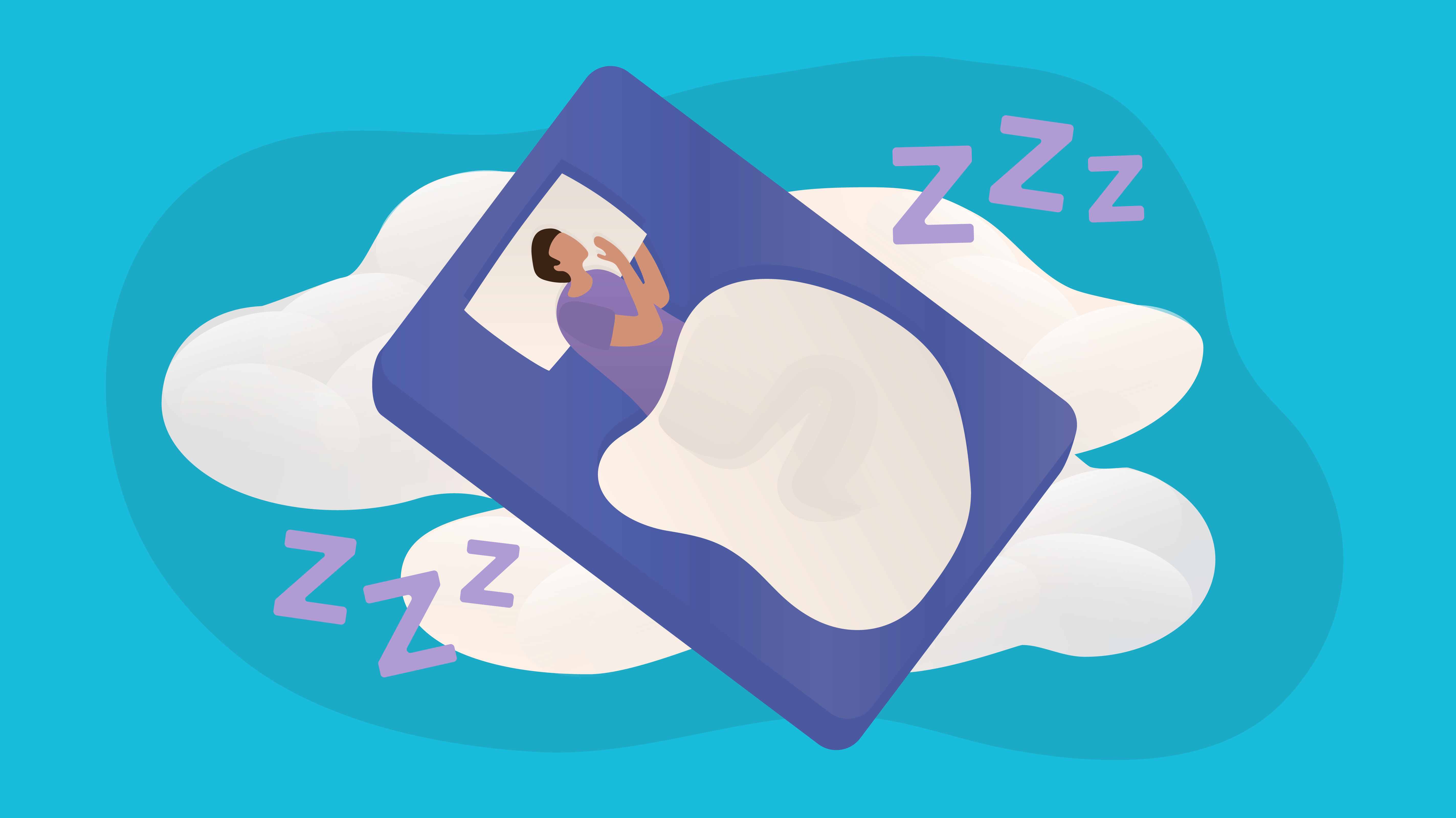Advanced Sleep Therapy - Achieve Deep, Restful Sleep
Effective Therapy Solutions for Managing Rest Disorders and Enhancing Relaxing Rest
In the realm of medical care, the management of sleep problems and the mission for relaxed sleep are pivotal elements of overall wellness. As we navigate the complex landscape of sleep problems and seek to enhance our rest experience, a much deeper understanding of these treatment options might hold the trick to unlocking a much more rejuvenating and satisfying restorative journey.
Cognitive Behavioral Therapy for Sleeping Disorders (CBT-I)
Cognitive Behavior Treatment for Sleep Problems (CBT-I) is an organized, evidence-based therapy technique that focuses on attending to the underlying variables contributing to rest disturbances. This kind of therapy aims to change behaviors and ideas that intensify insomnia, inevitably promoting healthy and balanced rest patterns. CBT-I normally involves several vital elements, consisting of cognitive treatment, sleep limitation, stimulation control, and sleep hygiene education.
Cognitive therapy aids people determine and alter unfavorable thought patterns and beliefs about rest that may be impeding their capacity to drop or stay asleep. Rest restriction includes restricting the quantity of time spent in bed to match the individual's real sleep duration, thus enhancing sleep performance (insomnia specialist). Stimulus control strategies help establish a solid association between the bed and sleep by urging people to go to bed just when sleepy and to stay clear of participating in stimulating activities in bed
In addition, sleep health education and learning concentrates on developing healthy and balanced sleep behaviors, such as keeping a constant rest routine, producing a relaxing bedtime routine, and maximizing the sleep atmosphere. By dealing with these variables adequately, CBT-I uses a reliable non-pharmacological intervention for handling sleeping disorders and boosting total sleep top quality.
Sleep Health Practices
Having developed the foundation of cognitive restructuring and behavior modifications in addressing sleeping disorders via Cognitive Behavior modification for Sleeplessness (CBT-I), the emphasis now changes towards exploring important Rest Health Practices for maintaining ideal rest quality and general wellness.
Rest health practices incorporate a variety of behaviors and environmental elements that can substantially affect one's capacity to sleep and remain asleep throughout the night. Consistent sleep and wake times, producing a relaxing bedtime routine, and enhancing the rest setting by keeping it dark, peaceful, and cool are crucial parts of good sleep hygiene. Limiting exposure to screens before bedtime, staying clear of energizers like high levels of caffeine close to going to bed, and taking part in normal exercise throughout the day can likewise advertise better rest quality.
Additionally, exercising relaxation techniques such as deep breathing workouts or meditation prior to bed can aid soothe the mind and prepare the body for rest. By integrating these sleep health techniques into one's daily routine, people can develop a healthy rest pattern that sustains relaxing rest and general well-being.
Leisure Methods and Mindfulness
Applying relaxation methods and mindfulness practices can play an essential duty in promoting a feeling of calm and advertising high quality rest. Furthermore, directed images can assist deliver individuals to a relaxed location in their minds, aiding in stress reduction and boosting sleep high quality.
Mindfulness techniques, such as meditation and yoga, are also effective in promoting relaxation and enhancing rest. Mindfulness urges people to remain existing in the moment, releasing fret about the past or future. By including these practices right into a going to bed regimen, people can signal to their bodies that it is time to loosen up and prepare for rest. Overall, integrating relaxation methods and mindfulness methods can significantly add to managing rest disorders and improving overall rest high quality.

Medicine Options for Rest Disorders
After exploring leisure techniques and mindfulness practices as non-pharmacological treatments for improving rest high quality, it is important to take into consideration medicine alternatives for people with rest problems. In instances where way of living changes and therapy do not provide sufficient relief, medication can be an important tool in handling rest disruptions.
Frequently prescribed medicines for sleep disorders include benzodiazepines, non-benzodiazepine hypnotics, antidepressants, and melatonin receptor agonists. Antidepressants, such as trazodone, visit the website can be advantageous for individuals with co-occurring depression and sleep disturbances - sleep improvement therapy.
It is important for individuals to talk to a healthcare supplier to identify one of the most suitable drug alternative based on their certain rest disorder and clinical history.
Light Therapy for Circadian Rhythm Guideline
Light treatment, additionally called photo-therapy, is a non-invasive therapy technique used to manage circadian rhythms and boost sleep-wake cycles. This treatment involves exposure to intense light that simulates natural sunlight, which helps to reset the body's internal clock. By revealing individuals to specific wavelengths of light, typically in the morning or evening Recommended Reading depending on the wanted result, light treatment can properly readjust the body clock to promote wakefulness throughout the day and enhance relaxed sleep during the night.
Research has shown that light therapy can be specifically useful for individuals with body clock disorders, such as delayed sleep phase disorder or jet lag. It can likewise be valuable for those experiencing seasonal affective problem (SAD), a kind of depression that commonly occurs throughout the cold weather when natural light direct exposure is minimized. Light therapy is typically well-tolerated and can be made use of along with various other therapy methods for rest disorders to optimize results and enhance overall sleep top quality.
Conclusion
Finally, efficient therapy services for handling rest conditions and boosting peaceful sleep include Cognitive best site Behavioral Treatment for Sleeping Disorders (CBT-I), rest health techniques, leisure techniques and mindfulness, drug choices, and light treatment for circadian rhythm law. These strategies can assist individuals enhance their rest top quality and total wellness. It is very important to seek advice from a doctor to establish one of the most suitable method for dealing with rest concerns.
As we navigate the complex landscape of sleep disorders and seek to enhance our sleep experience, a much deeper understanding of these therapy services may hold the secret to opening a much more relaxing and fulfilling corrective trip.
Sleep constraint includes restricting the amount of time invested in bed to match the person's real sleep period, thereby increasing sleep efficiency. Constant rest and wake times, creating a relaxing going to bed routine, and maximizing the rest setting by keeping it dark, silent, and cool are important components of good sleep health. Light treatment is usually well-tolerated and can be made use of in combination with other therapy methods for rest problems to maximize end results and improve overall rest top quality.
